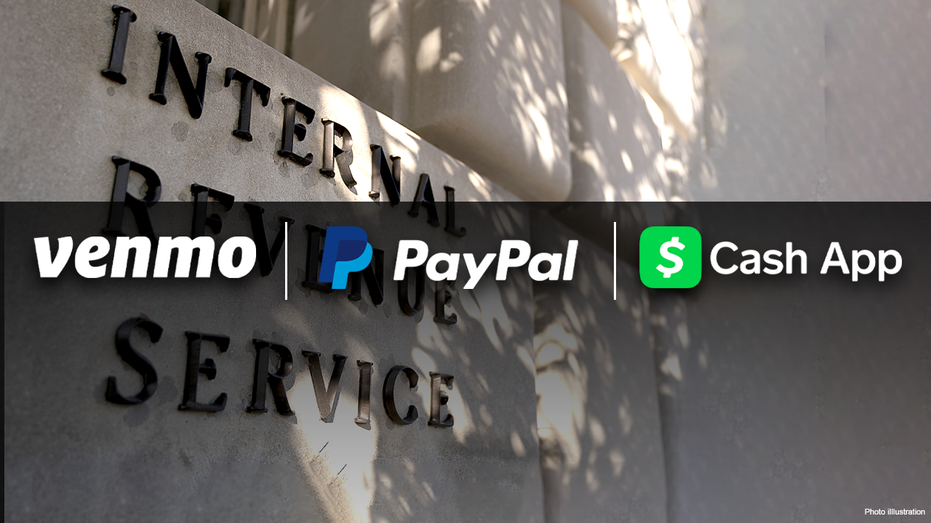Tax reporting nightmare creates a 'disaster' scenario for Americans: Reform expert
Sens. Manchin, Hagerty to file an amendment raising taxable third-party platform payments from $600 to $10,000
Rep. Kat Cammack: We must know where 'every single dollar' of Ukraine aid went
Florida Rep. Kat Cammack and Americans for Tax Reform president Grover Norquist break down the GOP's mixed messaging about supporting Ukraine on 'The Evening Edit.'
As tax advocacy groups call for delaying the proposed IRS tax rule on Venmo and PayPal payments, Americans for Tax Reform President Grover Norquist echoed similar concerns, claiming the plan will create a "disaster" scenario for taxpayers.
"Unless you have the receipts for all of the things that you're selling at some point, you're going to be hit with a note from the IRS: ‘You owe us money on this. How would you like to be audited? Tens of millions of these are going out. It's a disaster," Norquist said Wednesday in response to "The Evening Edit" host Liz MacDonald pointing out Americans now have to face a "1099 reporting nightmare."
The new tax reporting requirement, which only applies to payments received for goods and services transactions, asks taxpayers to report transactions of at least $600 that are received through third-party payment apps like Venmo, PayPal and Cash App.
Third-party payment processors will now be required to provide both users and the IRS with Form 1099-K if they add up to more than $600 over the course of the year. Previously, the payment apps were required to send users Form 1099-K if their gross income exceeded $20,000 or they had 200 separate transactions within a calendar year. Democrats made the change in March 2021, when they passed the American Rescue Plan without any Republican votes.
NEW I.R.S. TAX RULES ON VENMO, PAYPAL PAYMENTS OVER $600 COULD ‘OVERBURDEN’ AMERICANS
Now, a single transaction over $600 will trigger the form. The change is intended to crack down on Americans evading taxes by not reporting the full extent of their gross income. However, critics say that it amounts to government overreach at its worst and that it could ultimately hurt small businesses.

The IRS' new tax disclosure requirement on Venmo, PayPal and Cash App payments of more than $600 will be a "disaster," Americans for Tax Reform President Grover Norquist said on "The Evening Edit" Wednesday, December 21, 2022. (iStock)
"What the Democrats did was say, if you get $600 in the course of the year through PayPal or Venmo or any of the various areas, eBay and so on, that the company is going to send to the IRS, that you got $600 or $700 or whatever it is, and then you have to prove it's not income," Norquist explained.
However, using Venmo or PayPal to send a loved one a gift, pay your roommate rent or reimburse a friend for dinner will be excluded from the new requirement. Also excluded is anyone who receives money from selling a personal item at a loss; for example, if you purchased a couch for $300 and sold it for $250, the amount is not taxable.
On Tuesday, Sen. Joe Manchin, D-W.V., told CNBC that he, alongside Sen. Bill Hagerty, R-Tenn., plans to file an amendment in the ongoing omnibus bill discussions that would raise the taxable payment threshold from $600 to $10,000.
But the tax reform expert claimed Wednesday evening that Hagerty has pulled his support for the amendment and proposed an alternative plan.
GET FOX BUSINESS ON THE GO BY CLICKING HERE
What would the omnibus spending bill mean for tax cuts?
Texas Republican Rep. Kevin Brady analyzes the impact of the omnibus spending bill on 'Kudlow.'
"The Manchin bill is not getting the support now from Hagerty," Norquist said. "What they're going for instead is a one-year delay of this, so we can kill it next year."
The National Association of Tax Professionals (NATP) this week warned that the new rule could "overburden" Americans and cause serious confusion for taxpayers. The NATP suggested that several changes be made to the new rule before it is ultimately implemented, including requesting that third-party settlement companies establish business and personal accounts in order to intentionally separate business transactions from users who use third-pay settlement programs.
FOX Business’ Megan Henney contributed to this report.






















